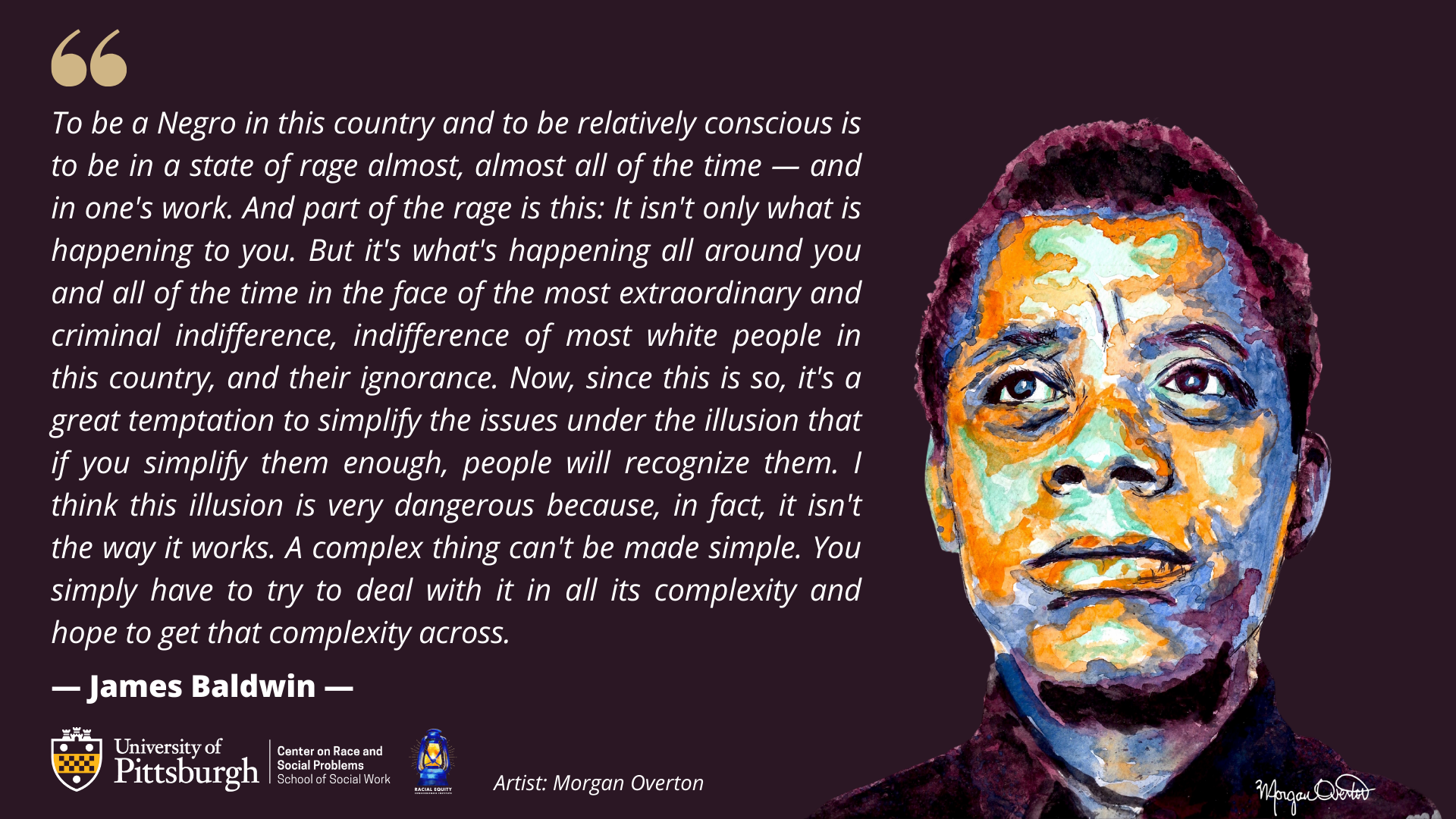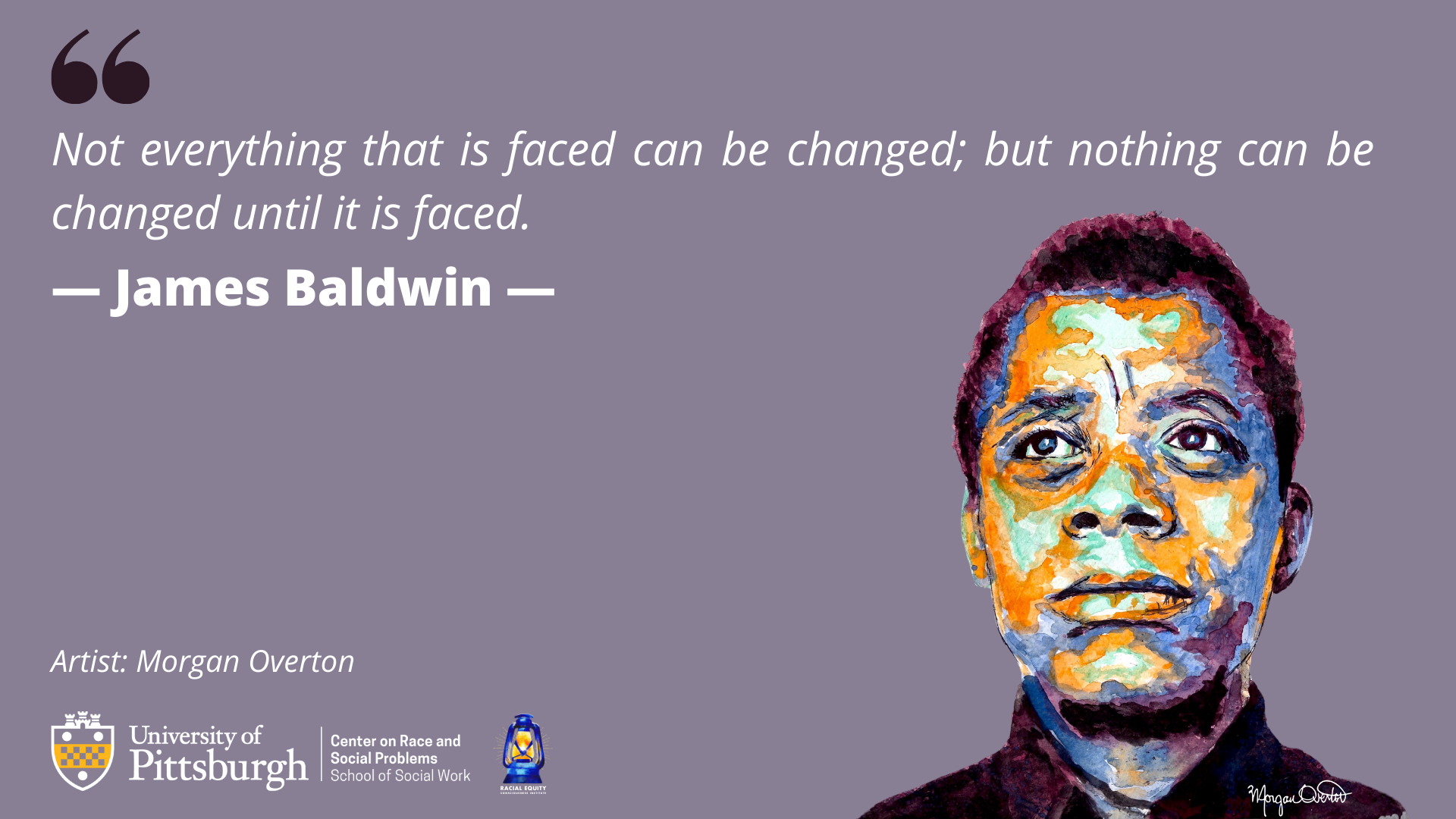



James Baldwin was born in Harlem, New York, in 1924. He was reared by his mother and stepfather David Baldwin, a Baptist preacher, originally from New Orleans, Louisiana. During his early teen years, Baldwin attended Frederick Douglass Junior High School, where he met his French teacher and mentor Countee Cullen, who achieved prominence as a poet of the Harlem Renaissance. Baldwin went on to DeWitt Clinton High School, where he edited the school newspaper Magpie and participated in the literary club.
In 1948, feeling stifled creatively because of the racial discrimination in America, Baldwin traveled to Europe to create what were later acclaimed as masterpieces to the American literature canon. While living in Paris, Baldwin was able to separate himself from American segregated society and better write about his experience in the culture that was prevalent in America. Baldwin took part in the Civil Rights Movement, becoming close friends with Medgar Evers, Reverend Martin Luther King Jr., Malcolm X, Maya Angelou, Nina Simone, and Lorraine Hansberry. The deaths of many of these friends influenced his novels and plays and his writing about race relations in America.
Baldwin’s works helped to raise public awareness of racial and sexual oppression. His honest portrayal of his personal experiences in a national context challenged America to uphold the values it promised on equality and justice. He explored these topics in such works as Go Tell It on the Mountain, Notes of a Native Son, The Fire Next Time, Giovanni’s Room, If Beale Street Could Talk, and Another Country. Baldwin firmly believed sexuality was fluid and should not be divided into strict categories, an idea that would not be acceptable until modern day. Through his popularity and writings produced at home and abroad, Baldwin contributed as an agent of change to the artistic and intellectual traditions in American society.
Baldwin remained an outspoken observer of race relations in American culture. He would branch out into other forms of creative expression, writing poetry and screenplays, including treatments for the Autobiography of Malcolm X that later inspired Spike Lee’s feature film, Malcolm X. He also spent years as a college professor at University of Massachusetts at Amherst and Hampshire College. Baldwin died at this home in St. Paul de Vence, France, on December 1, 1987, of stomach cancer at age 63. Baldwin’s unfinished manuscript Remember This House was the subject of the critically acclaimed 2016 Raoul Peck film, I Am Not Your Negro.
Source: National Museum of African American History & Culture
